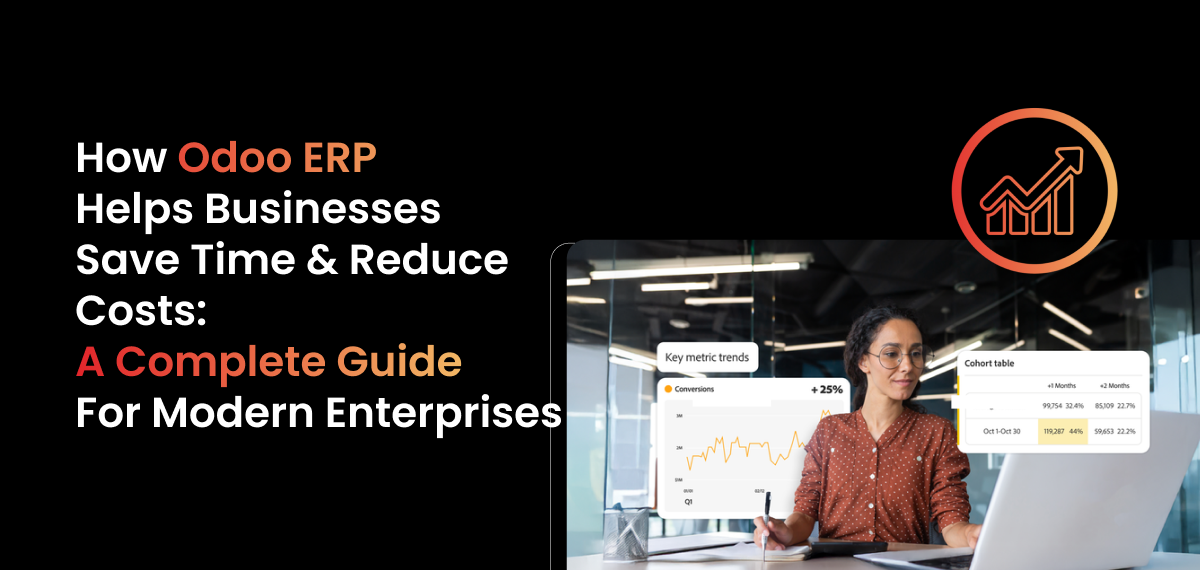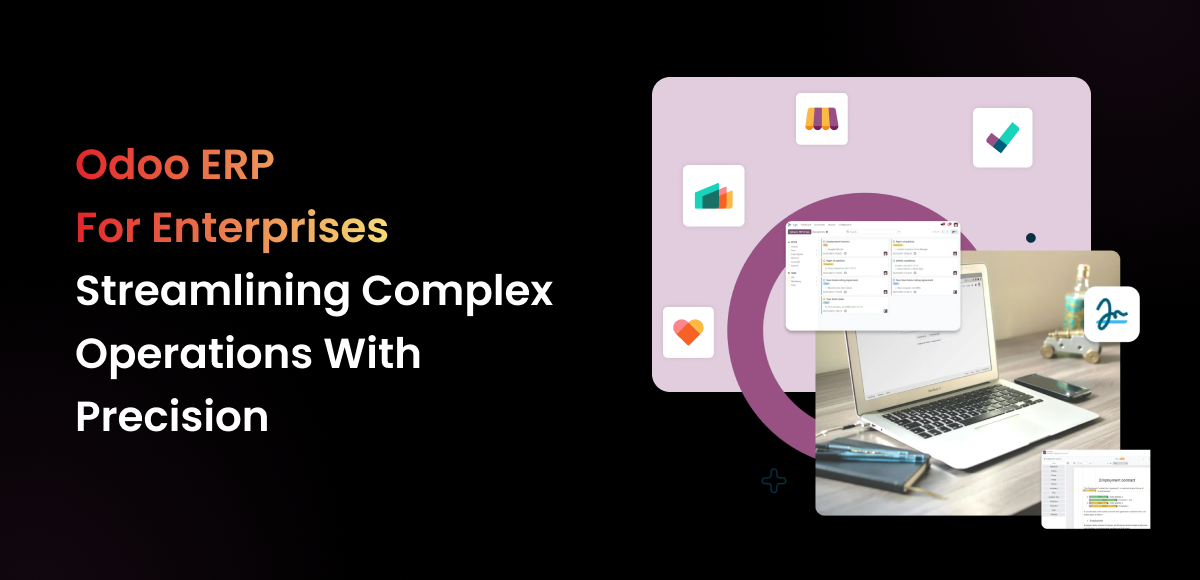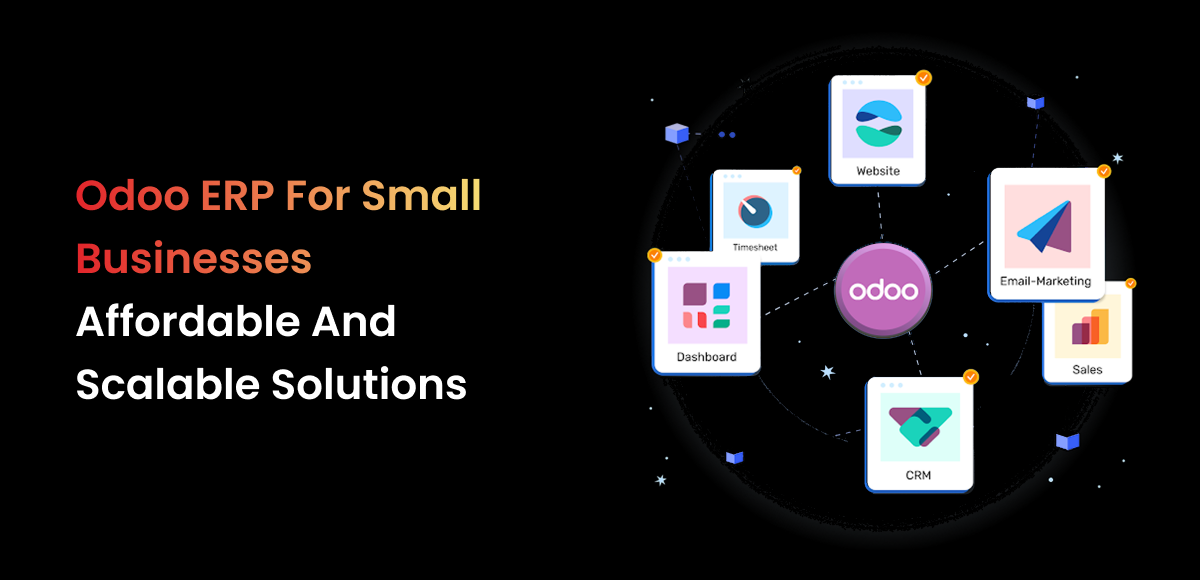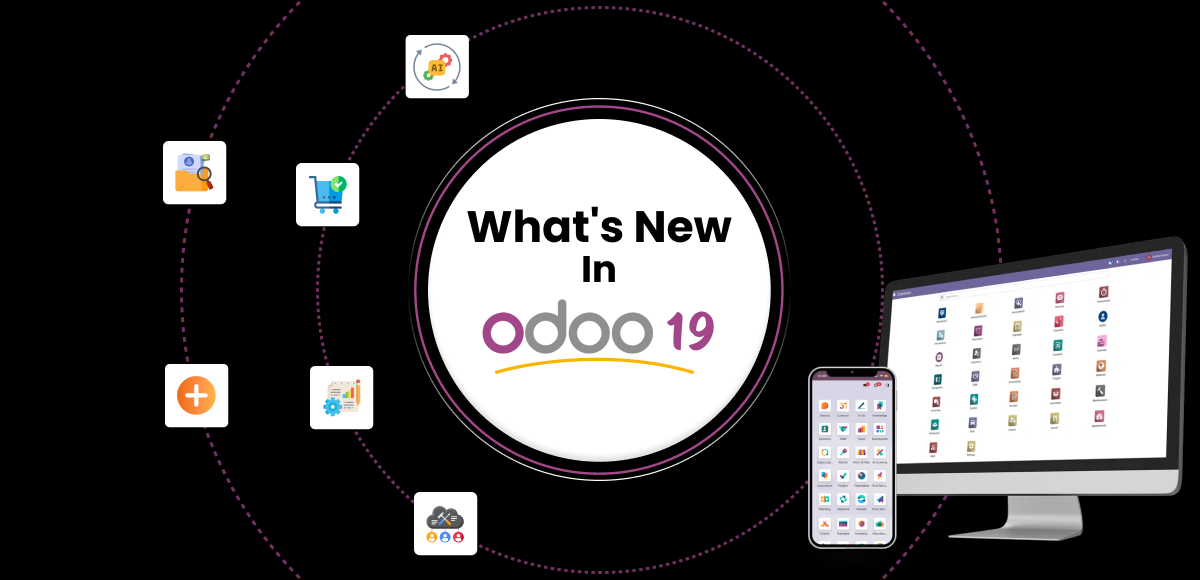In today’s competitive business landscape, organizations are constantly seeking ways to streamline operations, reduce overhead costs, and maximize efficiency. Enter Odoo ERP – a comprehensive enterprise resource planning solution that has revolutionized how businesses manage their operations. This powerful ERP system offers an integrated approach to business management, helping companies achieve significant cost savings while dramatically improving operational efficiency.
Understanding how Odoo ERP works and how ERP helps business operations is crucial for companies looking to stay competitive in 2025 and beyond. With businesses reporting cost reductions of up to 40% and time savings of 30-50% after implementing Odoo, it’s clear that this ERP software represents a game-changing investment for organizations of all sizes.
These agents function through a combination of:
- Perception systems: Collecting and interpreting data from various sources
- Decision-making algorithms: Analyzing information and determining optimal actions
- Action mechanisms: Implementing decisions through content creation and modification
The development of intelligent agent in AI technology has revolutionized personalized content experiences.
Understanding Odoo ERP: The Foundation of Business Efficiency
Odoo ERP stands as one of the best ERP software solutions available today, offering a modular approach that allows businesses to customize their implementation based on specific needs. Unlike traditional software systems that require multiple disparate applications, Odoo provides an all-in-one platform that integrates every aspect of Business Operations.
The beauty of how odoo works lies in its comprehensive suite of applications that seamlessly communicate with each other. From odoo crm and odoo accounting to inventory management and odoo erp sales, every module is designed to work in harmony, eliminating data silos and reducing the complexity that often plagues multi-vendor software environments.
This integrated approach is particularly beneficial for software companies and businesses requiring complex workflow management. The system’s cloud-based architecture ensures that teams can access critical business information from anywhere, at any time, making it an ideal solution for modern, distributed workforces.
How Odoo ERP Transforms Time Management and Operational Efficiency
Streamlined Business Process Automation
One of the most significant ways Odoo ERP helps businesses save time is through comprehensive business process automation. The system automates routine tasks that traditionally consume hours of manual labor, allowing employees to focus on strategic initiatives that drive growth.
The automation business capabilities extend across all departments. For instance, the odoo time off module automatically tracks employee vacation requests, approvals, and balance calculations, eliminating the need for manual HR processes. Similarly, the inventory management system automatically updates stock levels, generates purchase orders, and manages supplier communications based on predefined rules.
Enhanced Decision-Making Through Real-Time Data
Understanding how ERP helps in better decision-making is crucial for business leaders. Odoo ERP provides real-time dashboards and comprehensive reporting tools that give managers instant access to critical business metrics. This immediate access to accurate data eliminates the time-consuming process of gathering information from multiple sources and reduces the risk of decisions based on outdated information.
The system’s advanced analytics capabilities allow businesses to identify trends, forecast demand, and optimize resource allocation with unprecedented accuracy. This data-driven approach to decision-making not only saves time but also significantly improves the quality of strategic choices, leading to better business outcomes and reduced operational risks.
Integrated Communication and Collaboration
Traditional business operations often suffer from communication breakdowns between departments. Odoo’s integrated approach eliminates these silos by providing a unified platform where all team members can collaborate effectively. The built-in communication tools, project management features, and shared document repositories ensure that information flows seamlessly across the organization.
This improved collaboration translates directly into time savings. Teams no longer need to spend hours in meetings clarifying project status or searching for the latest version of important documents. Everything is accessible through a single, intuitive interface that promotes transparency and accountability.
Cost Reduction Strategies Through Odoo ERP Implementation
Elimination of Software Licensing Fees
One of the most immediate cost benefits of implementing Odoo ERP is the reduction in software licensing fees. Many businesses currently rely on multiple specialized applications for different functions – separate systems for accounting, CRM, inventory management, and project management. Each of these systems typically requires individual licenses, maintenance contracts, and support agreements.
Odoo’s comprehensive approach eliminates the need for multiple software vendors. The Odoo ERP cost structure is designed to be transparent and scalable, allowing businesses to pay only for the modules they actually use. This modular pricing approach can result in significant savings compared to traditional ERP solutions that require expensive enterprise-wide licenses.
Reduced IT Infrastructure and Maintenance Costs
The cloud-based nature of modern Odoo implementations significantly reduces IT infrastructure requirements. Businesses no longer need to invest in expensive servers, backup systems, or dedicated IT staff to maintain complex on-premise installations. The Cloud ERP model shifts these responsibilities to experienced providers who can deliver enterprise-grade infrastructure at a fraction of the cost.
Additionally, the unified nature of the Odoo platform reduces the complexity of IT management. Instead of maintaining integrations between multiple systems, IT teams can focus on supporting a single, well-integrated platform. This reduction in complexity translates to lower maintenance costs and fewer system-related issues.
Improved Operational Efficiency and Resource Utilization
Odoo ERP helps businesses optimize resource utilization across all departments. The system’s advanced scheduling and planning tools ensure that human resources, equipment, and materials are used most effectively. This optimization reduces waste, minimizes idle time, and maximizes productivity across the organization.
For manufacturing businesses, the ERP software for the manufacturing industry capabilities includes sophisticated production planning, quality control, and supply chain management features. These tools help manufacturers reduce material waste, optimize production schedules, and minimize costly downtime.
Implementation Strategies for Maximum ROI
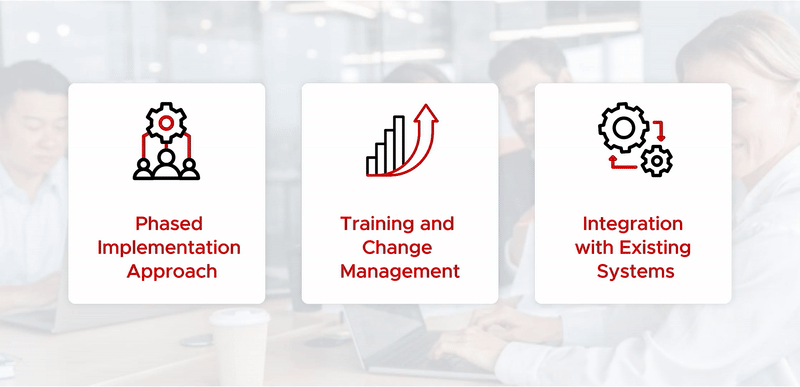
Phased Implementation Approach
Successful Odoo ERP implementation requires careful planning and a strategic approach. Rather than attempting to implement all modules simultaneously, most businesses benefit from a phased approach that allows for gradual adoption and learning. This strategy reduces implementation risks and allows organizations to realize benefits more quickly.
The typical implementation phases begin with core modules such as accounting and CRM, followed by more specialized functions like inventory management and manufacturing. This approach allows businesses to see immediate returns on their investment while building confidence and expertise with the system.
Training and Change Management
The success of any ERP system implementation depends heavily on user adoption. Comprehensive training programs ensure that employees understand how to leverage the system’s capabilities effectively. Modern odoo tutorial resources, combined with hands-on training sessions, help teams transition smoothly from legacy systems to the new platform.
Change management strategies should also address the cultural aspects of digital transformation. Employees need to understand not just how to use the new system, but why the change is beneficial for both the organization and their individual roles.
Integration with Existing Systems
Many businesses have existing software investments that need to be preserved during the ERP implementation. Odoo’s flexible architecture supports integration with various third-party systems, including e commerce platform solutions, specialized industry applications, and legacy databases.
This integration capability allows businesses to protect their existing investments while gradually migrating to a more unified system architecture. The result is a hybrid environment that maximizes the value of both new and existing technology investments.
Industry-Specific Benefits and Applications
Small Business Advantages
For small businesses, Odoo ERP offers enterprise-grade capabilities without the enterprise-level complexity and cost. The accounting software’s small business features provide comprehensive financial management tools that rival those found in dedicated accounting packages, while the integrated CRM helps small businesses manage customer relationships more effectively.
The business accounting software for small businesses capabilities includes automated invoicing, expense tracking, tax management, and financial reporting. These features eliminate the need for multiple specialized applications and reduce the learning curve for small business owners who need to wear multiple hats.
Manufacturing and Distribution Benefits
Manufacturing businesses benefit significantly from Odoo’s comprehensive production management capabilities. The system provides end-to-end visibility into the manufacturing process, from initial demand forecasting through final delivery. This visibility enables manufacturers to optimize production schedules, reduce inventory carrying costs, and improve customer satisfaction through better delivery performance.
Distribution companies leverage Odoo’s advanced inventory management and logistics capabilities to optimize warehouse operations, reduce shipping costs, and improve order accuracy. The system’s ability to manage multiple warehouses, track lot numbers, and automate reorder processes makes it an ideal solution for complex distribution operations.
Service-Based Business Optimization
Service-based businesses, including software development companies and consulting firms, benefit from Odoo’s project management and time tracking capabilities. The system provides comprehensive project visibility, resource allocation tools, and automated billing features that help service providers improve profitability and client satisfaction.
The integration between project management, time tracking, and invoicing ensures that all billable hours are captured and invoiced accurately, reducing revenue leakage and improving cash flow.
Measuring Success: ROI and Performance Metrics
Financial Impact Assessment
Businesses implementing Odoo ERP typically see measurable financial benefits within the first year of implementation. Common metrics include reduced operational costs, improved cash flow through better invoicing processes, and decreased inventory carrying costs through optimized stock management.
The system’s comprehensive reporting capabilities make it easy to track these improvements and demonstrate ROI to stakeholders. Regular performance reviews help businesses identify additional optimization opportunities and ensure that they’re maximizing their ERP investment.
Operational Efficiency Metrics
Beyond financial benefits, Odoo ERP delivers measurable improvements in operational efficiency. Businesses typically report reduced processing times for routine tasks, improved data accuracy, and enhanced customer satisfaction scores. These operational improvements often translate into competitive advantages that extend far beyond simple cost savings.
The system’s built-in analytics help businesses track key performance indicators (KPIs) across all departments, providing visibility into areas of success and opportunities for further improvement.
Future-Proofing Your Business with Odoo ERP
Scalability and Growth Support
One of the key advantages of choosing Odoo as your ERP solution is its ability to scale with your business. The modular architecture allows businesses to add new functionality as they grow, without requiring complete system replacements or major reconfigurations.
This scalability ensures that your ERP investment continues to deliver value as your business evolves. Whether you’re expanding into new markets, adding product lines, or growing your team, Odoo can adapt to support your changing needs.
Technology Innovation and Updates
Odoo’s commitment to continuous innovation ensures that businesses benefit from the latest technology advances without requiring major system overhauls. Regular updates introduce new features, security enhancements, and performance improvements that keep your system current with industry best practices.
The active community of developers and the availability of odoo apps provide additional customization options and specialized functionality that can be integrated seamlessly with your core ERP system.
Conclusion: Transforming Business Operations with Odoo ERP
The evidence is clear: Odoo ERP represents a transformative investment for businesses seeking to reduce costs, save time, and improve operational efficiency. By providing an integrated platform that eliminates data silos, automates routine processes, and delivers real-time business intelligence, Odoo enables organizations to focus on what matters most – growing their business and serving their customers.
The combination of cost savings, operational efficiency improvements, and enhanced decision-making capabilities makes Odoo ERP an essential tool for businesses competing in today’s dynamic marketplace. Whether you’re a small business looking to scale operations or an established enterprise seeking to optimize performance, Odoo provides the foundation for sustainable growth and success.
The key to success lies in proper implementation, comprehensive training, and a commitment to leveraging the system’s full capabilities. With the right approach and support from experienced odoo partners, businesses can achieve the significant time and cost savings that make Odoo ERP such a compelling investment.
Frequently Asked Questions (FAQs)
Q1: How much does an Odoo ERP implementation typically cost for a small business?
A: Odoo ERP implementation costs vary based on the number of users and modules required. Small businesses can expect to invest between $3,000-$15,000 for initial implementation, with ongoing subscription costs ranging from $20-$50 per user per month. The exact Odoo pricing depends on specific requirements and customization needs.
Q2: How long does it take to implement Odoo ERP and see results?
A: Most businesses see initial benefits within 3–6 months of implementation. A phased approach typically takes 6–12 months for complete deployment, but core modules like accounting and CRM can be operational within 4–8 weeks. The timeline depends on business complexity and the number of modules being implemented.
Q3: Can Odoo ERP integrate with existing business applications?
A: Yes, Odoo offers extensive integration capabilities through APIs and connectors. It can integrate with popular applications including e-commerce platforms, payment processors, banks, and industry-specific software. This flexibility allows businesses to maintain critical existing systems while benefiting from Odoo’s unified platform.
Q4: What kind of training and support is available for Odoo ERP users?
A: Odoo provides comprehensive training resources, including online tutorials, documentation, and certification programs. Additionally, Odoo partners offer customized training programs, ongoing support, and consultation services. Many businesses also benefit from community forums and user groups for peer support.
Q5: Is Odoo ERP suitable for manufacturing businesses?
A: Absolutely. Odoo includes robust manufacturing modules covering production planning, bill of materials management, work order tracking, and quality control. The ERP software for the manufacturing industry capabilities makes it an excellent choice for manufacturers seeking to optimize production processes and reduce operational costs.
Q6: How does Odoo ERP help with business process automation?
A: Odoo automates numerous business processes, including invoicing, inventory management, employee time tracking, purchase order generation, and customer communications. The automation business features can reduce manual tasks by up to 60%, allowing employees to focus on strategic activities that drive business growth.
